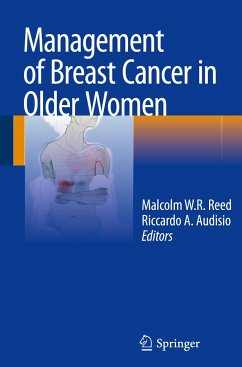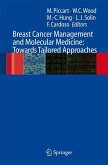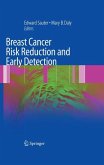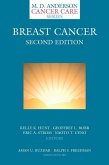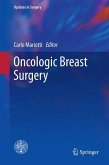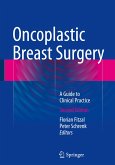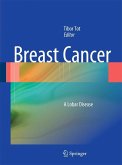I was looking at Mrs T - all 45 kilos of her - with somewhat puzzled thoughts. I had prescribed her capecitabine at very prudent doses, in view of her 91-year-old kidneys and physiology. She had reduced my treatment even further, "because it was making her tired." As a result, she was taking a grand total of 500 mg of capecitabine a day. Yet, her metastatic, ER/PR-negative, Her2-positive breast cancer was undoubtedly responding. Her pain was improving and her chest mass was shrinking, as were her lung metastases... What was the secret of that response? Were Mrs T's kidneys eli- nating even less drug than predicted by her creatinine clearance? Was her sarcopenia altering drug distribution? Was she absorbing more drug than average? Or was her tumor exquisitely sensitive to fluoropyrimidines? "Physicians," said Voltaire, "pour drugs they know little for diseases they know even less into patients they know no- ing about." Medicine has made tremendous progress since the eighteenth century. Yet, there are fields where quite a lot remains to be learned. In developed countries, 25% of breast cancers occur in patients aged 75 years and older. Yet, these patients represent only 4% of the population of traditional clinical trials. That ought to let us wonder how relevant data acquired in patients in their 60s are to a nonagenarian. Fortunately, geriatric oncologists have been stepping up to the task and have gen- ated data to help us to treat such patients.
From the reviews:
"This book is to provide readers with a review of the management of breast cancer in the older woman. ... volume provides a detailed background to each topic with clear and helpful evidence based guidance. ... book succeeds in providing evidence based guidance on virtually all aspects of breast cancer management. It represents good value for money ... and is an asset to the library. It is suitable for the established clinician, trainee oncologist and to other members of the breast multidisciplinary team." (Karin Baria, Oncology News, Vol. 8 (2), May/June, 2013)
"A slim but comprehensive review of the issues related to treating breast cancer in older patients. ... it includes information about geriatrics as well as breast cancer biology and brings it all together in the treatment chapters. ... Intended for practitioners who are taking care of older women with breast cancer, this book is aimed at not only cancer specialists, but also primary care physicians. ... an excellent book that will provide guidance to a wide range of specialists who take care of these women." (Carol Scott-Conner, Doody's Book Reviews, August, 2011)
"Reed and Riccardo, have an established research and clinical interest in management of older women with breast cancer and have assembled a multidisciplinary panel of experts who contributed to various chapters in their field of expertise. ... The book aims to provide readers with the best available evidence in this field. ... a very well-written book and the editors and contributors have done justice to this topic. ... a valuable resource for clinicians and other health-care professionals who deal with elderly patients with breast cancer." (Mohammed Keshtgar, British Journal of Hospital Medicine, Vol. 72 (4), April, 2011)
"This book is to provide readers with a review of the management of breast cancer in the older woman. ... volume provides a detailed background to each topic with clear and helpful evidence based guidance. ... book succeeds in providing evidence based guidance on virtually all aspects of breast cancer management. It represents good value for money ... and is an asset to the library. It is suitable for the established clinician, trainee oncologist and to other members of the breast multidisciplinary team." (Karin Baria, Oncology News, Vol. 8 (2), May/June, 2013)
"A slim but comprehensive review of the issues related to treating breast cancer in older patients. ... it includes information about geriatrics as well as breast cancer biology and brings it all together in the treatment chapters. ... Intended for practitioners who are taking care of older women with breast cancer, this book is aimed at not only cancer specialists, but also primary care physicians. ... an excellent book that will provide guidance to a wide range of specialists who take care of these women." (Carol Scott-Conner, Doody's Book Reviews, August, 2011)
"Reed and Riccardo, have an established research and clinical interest in management of older women with breast cancer and have assembled a multidisciplinary panel of experts who contributed to various chapters in their field of expertise. ... The book aims to provide readers with the best available evidence in this field. ... a very well-written book and the editors and contributors have done justice to this topic. ... a valuable resource for clinicians and other health-care professionals who deal with elderly patients with breast cancer." (Mohammed Keshtgar, British Journal of Hospital Medicine, Vol. 72 (4), April, 2011)

